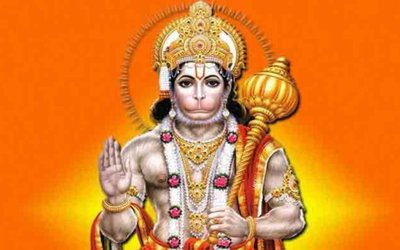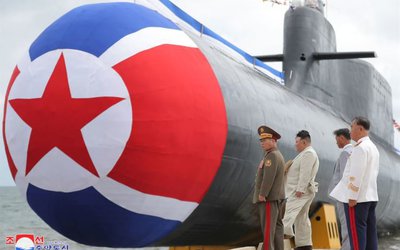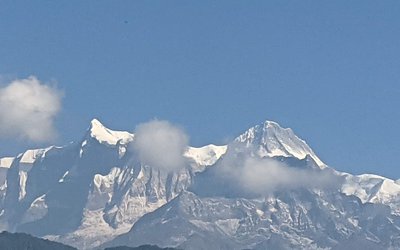Nepal is a country with many ingredients which can easily make her the richest country in South Asia, if not in Asia. Mt. Everest, Birth Place of Buddha, world’s best trekking routes, Switzerland-like scenic beauties, big hydropower/irrigation potential with 6000 rivers, excellent climate, fertile land, a brave country never colonized entire history, legendary Gurkha soldiers, hard-working rural population and above all increasing numbers of skilled “knowledge workers” and educated youths are some of the features of Nepal. But, presently Nepal is even lagging behind countries like Ethiopia, Vietnam, Cambodia, Laos, Bhutan and many other countries in Africa and South America. Looking back at Nepal's socio-economic development scene in the past four decades, it will be a futile exercise to try to prove that we have had "good" governance. It is altogether a different matter that few politicians, who were responsible in the governance in the past, used to defend their "rule" by trying to prove that country developed satisfactorily using yardsticks totally different from universally accepted norms.
Four major political upheavals and political changes took place in the years 1950AD, 1960AD, 1990AD and 2005AD, all of them occurred without any violent resistance from then rulers, unlike in many other countries of the world. It proves Nepal is a peaceful country with peaceful people. In the last political change, the country went for full-fledged democracy (LOKTANTRA), "best" system ever invented by political scientists, without any major fuss from 300 years old monarchy to the surprise of the entire world. But again governance in the past six years is still not encouraging and socio-economic development has yet to take-off.
Million dollar question is what went wrong and who were responsible for this state of affairs. Those responsible for running any country could be broadly classified in two groups- rulers (kings, politicians & dictators) and bureaucrats. Obviously, rulers will be at the helm of affairs, so they are mainly responsible for governance. Next to politicians, second biggest responsibility lies with bureaucrats. Within bureaucracy, a visible group of technocrats, especially engineers, exists, who also are definitely responsible for socio-economic development of the country. Although private sector, that is trade and industry, and social organizations like NGOs and INGOs play substantial role in socio-economic progress of the society, they have minimum role in governance of the country. Quite often people, in general, are also blamed by few intellectuals, politicians and journalists for nation’s problems. This is absolutely rubbish judgment.
Endless debate can take place, if we start analyzing which group of citizens- politicians, bureaucrats and technocrats- are responsible by what proportion for the present state of affairs in the country. One typical guess-estimate could be as follows: if 100% weight age is given to those three groups- politicians, bureaucrats and technocrats, almost 50% burden lies with politicians, about 40% with bureaucrats and 10% with technocrats. Many may raise eyebrows regarding this percentage break-down of responsibility and accountability for building the nation. But if we look at existing Acts, rules, regulations and authority to amend them; work-culture; traditional "TIPPANY CULTURE" way of decision-makings etc, it could be easily proven that engineering community "inside" government has the least responsibility as well as accountability in socio-economic growth of the country.
Governance, basically, is function of 26 ministries and 38 public sector enterprises (PSEs). And in all those 64 “organizations”, technocrats play a big role, especially in development works. According to The Pulitzer Prize winner author Thomas L. Friedman, for developing a country, the nation needs to get four basic things right:- infrastructure, education, governance and environment. Many prominent experts believe that one reason why China did better than India is the priority given to infrastructure development three decades back, where as India did not invest much in infrastructure building. Story is not much different in Nepal- Lumbini master plan project achieved just 15% in 40 years, 19 years of Melamchi, 16 hours of load shedding, no new aircraft in national flag carrier for past 25 years, 10/12 years of only discussion about Mega-hydropower projects, Second International Airport, Fast Track Highway between Kathmandu and Terai, outer ring road in Kathmandu and so on. And of course, common man will say that infrastructure building is in the domain of engineers and so engineering community is to be blamed. But the ground reality is different.
Characteristics, social position, values and expectations of engineers differ somewhat from others. One reason is “higher level” of education and engineering is a specialized knowledge. Due to this very nature of engineers’ knowledge and expertise, they tend to be somewhat detached from main stream bureaucracy. But bureaucracy is the engine of governance. Hence, engineering community must realize that they have to work as members of an “organization” or bureaucracy or society. Only an organization can convert engineering into performance effectively. Engineers in Melamchi project and Lumbini Master Plan project may be excellent, but after 19 years of Melamchi and 40 years of Lumbini, project completion is still no-where in sight. It proves that engineers inside government are treated as “employees”, whereas administrators “think” they are the bosses. Unless this mentality or mind-set or system is changed, we will continue to have many more Melamchis and Lumbinis. At the same time, engineers need to acquire management and leadership knowledge. In fact, essence of management is to make knowledege like engineering more productive and effective. Oldest example of excellent engineering supported by management was Pyramid of Egypt, which was built 4,700 years back.
While talking about infrastucture building, one topic, which always comes up for discussion is corruption. It is surprizing that Nepalese intelligentsia including media is creating the impression that single biggest reason for slow economic growth for the past few decades is the corruption. In fact, main reason for non-performance in socio-economic development of the country is total weakness shown by political executives and bureaucrats in priorityt-setting, decision-making and implementation. Political turmoil and uncertain poltical environment could be placed in the second position. Corruption could be placed in the third position for the sorry state of affairs in the country. Many may raise eyebrows of placing corruption in the third place for slow pace of development in almost all sectors in the past few decades. But facts and figures from dozens of developing as well as least-developed countries of the world can easily prove that most of the countries moved ahead in nation building activities without waiting for degree of corruption to subside to the level of developed society.
Coming few more years will surely be period of continuing political, social and economic turmoil in the country. So, challenges looming ahead for engineering community will be more serious and more daunting. Obviously, engineers responsible for infrastucture building need more and more management and leadership lessons to deal with political-bosses and bureaucrat-bosses.
- TANAHU HYDROPOWER PROEJCT: A Significant Achievement
- Apr 15, 2024
- AMBASSADOR HANAN GODAR: Sharing Pain With A Nepali Family
- Mar 30, 2024
- VISIT OF KfW AND EIB TO NEPAL : Mission Matters
- Mar 25, 2024
- NEPAL BRITAIN SOCIETY: Pratima Pande's Leadership
- Mar 24, 2024
- NEPAL ARMY DAY: Time To Recall Glory
- Mar 15, 2024
















